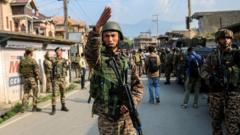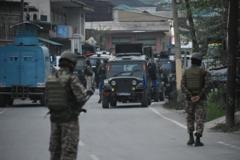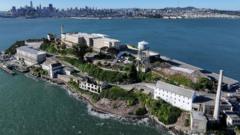Pakistan’s efforts to integrate its former tribal regions into the national framework have faltered as violence surges, reflecting deep-seated issues within the country’s security and governance.
Pakistan’s Integration of Tribal Areas Faces Mounting Challenges

Pakistan’s Integration of Tribal Areas Faces Mounting Challenges
The once semi-autonomous regions bordering Afghanistan struggle with increased militancy and social unrest following government reforms.
The northwestern borderlands of Pakistan, notorious for their lawlessness and extremism, are currently facing escalating violence and disillusionment with government reforms. Once labeled “the most dangerous place in the world” by former President Barack Obama, these regions were subject to enhanced scrutiny following the Pakistani government's 2018 decision to merge the Federally Administered Tribal Areas into the country’s mainstream political framework. This initiative aimed to improve governance and spur economic development, but many locals now perceive it as a failure.
Since the Taliban regained power in Afghanistan in 2021, Pakistan has seen a striking rise in terrorist attacks, resulting in over a thousand deaths last year compared to just 250 in 2019. The Institute for Economics and Peace ranks Pakistan among the nations most impacted by terrorism, trailing only behind Burkina Faso.
The residual effects of archaic colonial laws and geopolitical instability have compounded the problems facing the region. Experts note that the region's incorporation into a provincial structure has not addressed the fundamental challenges, leaving residents amidst rising violence in a nation struggling with both economic challenges and political distractions.
Amid these circumstances, a recent sit-in protest by Pakistani Shiite Muslims in Peshawar highlights the growing unrest over deteriorating security and governmental inaction. With a population of 250 million people, Pakistan's road to stability appears riddled with obstacles as it confronts deep-seated socio-political issues in these once-isolated territories.
Since the Taliban regained power in Afghanistan in 2021, Pakistan has seen a striking rise in terrorist attacks, resulting in over a thousand deaths last year compared to just 250 in 2019. The Institute for Economics and Peace ranks Pakistan among the nations most impacted by terrorism, trailing only behind Burkina Faso.
The residual effects of archaic colonial laws and geopolitical instability have compounded the problems facing the region. Experts note that the region's incorporation into a provincial structure has not addressed the fundamental challenges, leaving residents amidst rising violence in a nation struggling with both economic challenges and political distractions.
Amid these circumstances, a recent sit-in protest by Pakistani Shiite Muslims in Peshawar highlights the growing unrest over deteriorating security and governmental inaction. With a population of 250 million people, Pakistan's road to stability appears riddled with obstacles as it confronts deep-seated socio-political issues in these once-isolated territories.





















